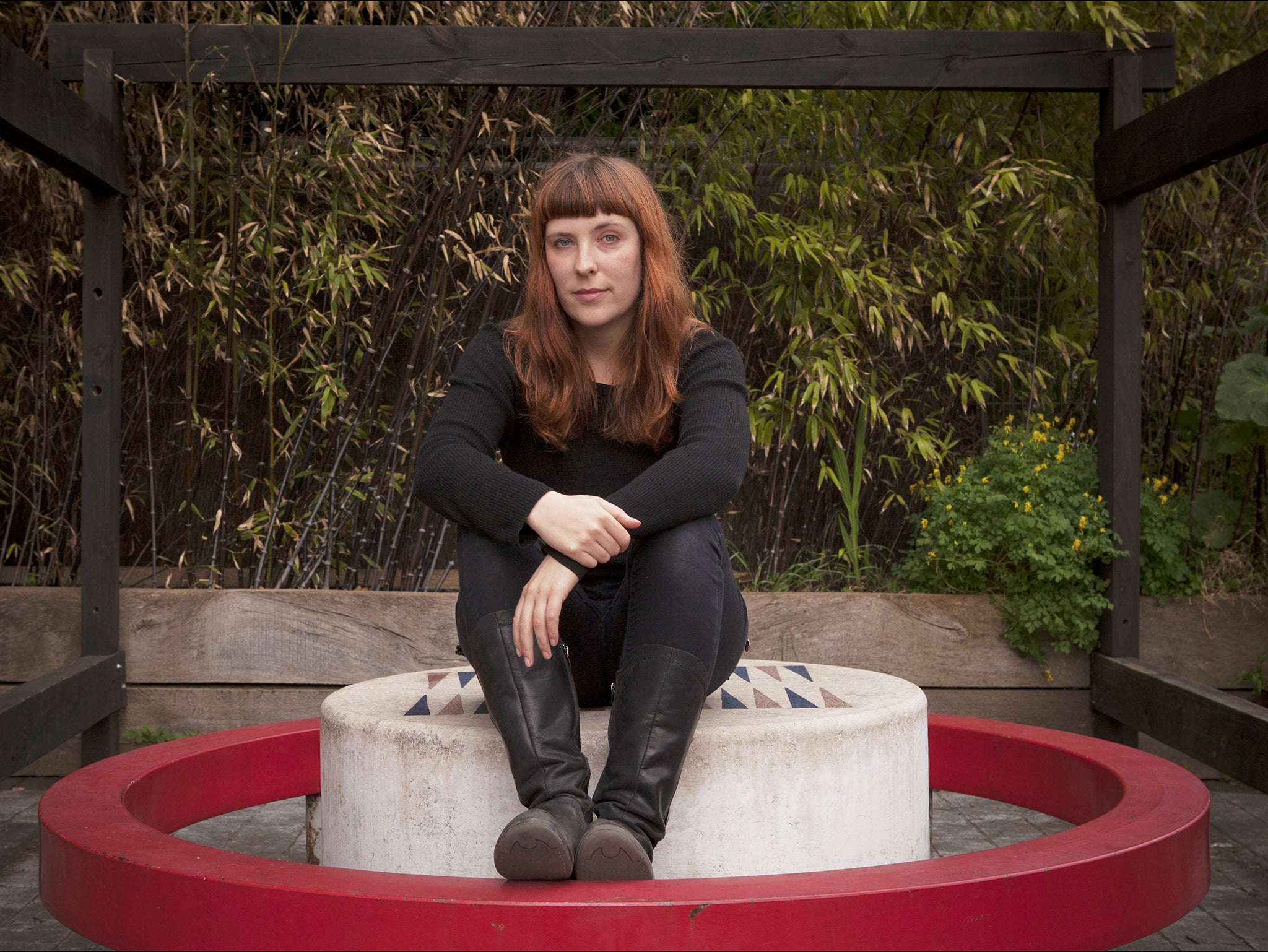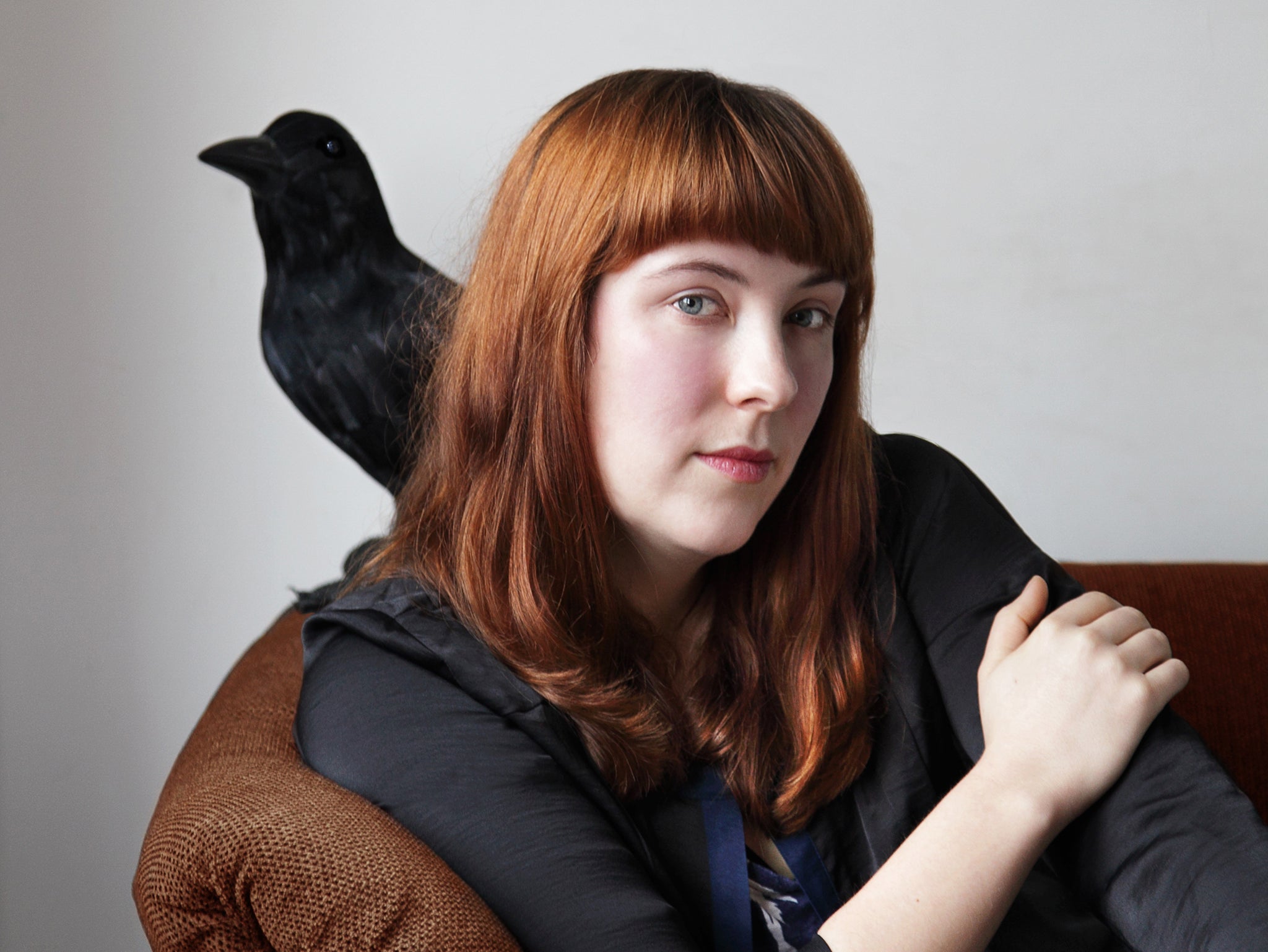Evie Wyld interview: How the author is turning her childhood fear of sharks into a graphic novel
What lies beneath

Your support helps us to tell the story
From reproductive rights to climate change to Big Tech, The Independent is on the ground when the story is developing. Whether it's investigating the financials of Elon Musk's pro-Trump PAC or producing our latest documentary, 'The A Word', which shines a light on the American women fighting for reproductive rights, we know how important it is to parse out the facts from the messaging.
At such a critical moment in US history, we need reporters on the ground. Your donation allows us to keep sending journalists to speak to both sides of the story.
The Independent is trusted by Americans across the entire political spectrum. And unlike many other quality news outlets, we choose not to lock Americans out of our reporting and analysis with paywalls. We believe quality journalism should be available to everyone, paid for by those who can afford it.
Your support makes all the difference.When she was at “little school”, acclaimed British-Australian author Evie Wyld was asked to give a speech. Terrified, she decided to talk about the only thing that obsessed her: sharks. “I hated public speaking,” she recalls. “But I was a proper nerd, and so I went on for about an hour, on and on about sharks.” As the 35-year-old award winner recounts the story, her laugh is clear and warm.
What she did not tell her classmates was that her obsession was born not from fascination, but fear. For the nightmares little Evie faced as she slept in her parent’s south London home came from the brutal wilderness of coastal New South Wales. Creatures did not emerge from beneath her bed: instead they swam through her dreams, teeth gleaming in the moonlight, reflected in fierce, hungry eyes.
“I had a proper shark phobia,” Wyld explains. This time her laugh is embarrassed, ashamed. “A lot of English people do.” It is said more as justification than explanation. She looks at me sideways and, with a shrug of her shoulders, smiles. “People who are very unlikely to encounter them in the swimming pool look for them.” I look around the River Front Café at the National Film Theatre, where we have met, and spot nearby a junior Gordon Gekko, plugged up to iPhone and MacBook Pro. He is balling someone out over the phone. Sharks do swim among us.
No metaphor is behind Wyld’s phobia: it is rooted in stories first heard when she was six. Stories told by fishermen about what lurked beneath the dark waters of the river skirting the farmstead of her maternal uncle and grandfather, whom she visited in the long summer holidays. The stories became a foundational myth for her and inspired Everything Is Teeth, a visual memoir with beautifully drawn illustrations by Joe Sumner, whom she has known since undergraduate days at Bath Spa University.

A graphic novel is an unexpected next step given the success of Wyld’s first two novels: 2011’s After the Fire, A Still Small Voice, won the John Llewellyn Rhys and Betty Trask Prizes; accolades for the prize-laden All The Birds, Singing include the EU Prize for Literature and being shortlisted for the 2013 Costa Best Novel Prize. But the memoir has been bubbling away for seven years while Wyld’s life evolved through marriage, the death of her father, and birth of her son. “It’s been one of those nice projects, for me, though probably really infuriating for Joe,” she explains, glancing surreptitiously at her seven-month old son, who is sleeping soundly in his pushchair.
“I have had enough time to do what I wanted with it. It changed very much from just some memories to having this shape, which turns out to be all about my father and his death, which happened while we were writing it.” Like the sharks that swim through the pages of the memoir, a shadow passes by us, but I can’t be sure, and like her illustrated self, I strain to see if anything will break the surface of Wyld’s calm. It does not.
Instead the conversation moves to what the sharks represent, both in the book and her psyche. She overcame her phobia, she says, after she realised that “if you absolutely don’t want to get eaten by a shark then don’t go in the sea. It’s that simple.” Such dry wit enlivens the book – Vic Hislop, a man obsessed with the idea that sharks are out to get us, is introduced as “a man with a moustache”. The minute detail of watching Jaws in the sitting room with her father is narrated with a warm nostalgia that will be familiar to many.
The sharks that swim in the memoir, and Wyld’s imagination, are fear from the id: the primal motivation for violence and depravity. It is old territory for the writer, who was featured on the 2013 Best of Young British Novelists list from Granta. Previous books feature masculine brutality and its impact on women and society. In All the Birds, Singing the gradual psychic striptease of sheep farmer Jake Whyte, isolated on a remote British island having fled Australia, brings shocking revelations that have seen the author accused of man-hating. With a shrug she dismisses the accusation.

Many of the attacks came from people who had not read the book – they assumed Jake is a man.
“I assume most of the bad stuff comes from bravado,” she responds when I ask about the raw masculinity we see displayed in the Australian men in her novels. “My Australian family are very, very macho. Underneath it, they are very kind, but they have tough jobs such as fishing and farming, which they do outside in all weathers, just in their pants sometimes.” We giggle like schoolgirls.
The machismo she describes reminds me of rams clashing horns to show they are not weak. She tells the story of her father – an English, public school-educated art dealer – who in a bizarre initiation into Outback life was taken by her uncle and grandfather to kill a cow in front of its calf, to provide steaks for a barbie. “Dad said it was really disgusting,” she adds, her mouth twists.
A tough woman is the heart of her next novel. It is based upon her paternal grandmother, a fierce harridan who struck fear into her children. “She was steel-grey haired and a chain smoker, and she used to say,” – she mimics smoking and assumes a cut-glass accent – “Simply ghastly darling.” She was feared by her children and became a “gin alcoholic” by the end of her life, but the granddaughter is keen to unearth what happened, to find out how the pressure of 1940s society turned a young woman into a harridan.
“She was incredibly smart and never did anything with her brain,” says Wyld, still seeking out the monsters that swim in our psyche. “I wanted to look into the mythology about her,” she adds. And with that, the interview closes as, on cue, her son awakes and wiggles in his seat. She checks on him and we use this as our signal to part. At the café doors she disappears into the crowd, swimming in the opposite direction to me.
Join our commenting forum
Join thought-provoking conversations, follow other Independent readers and see their replies
Comments